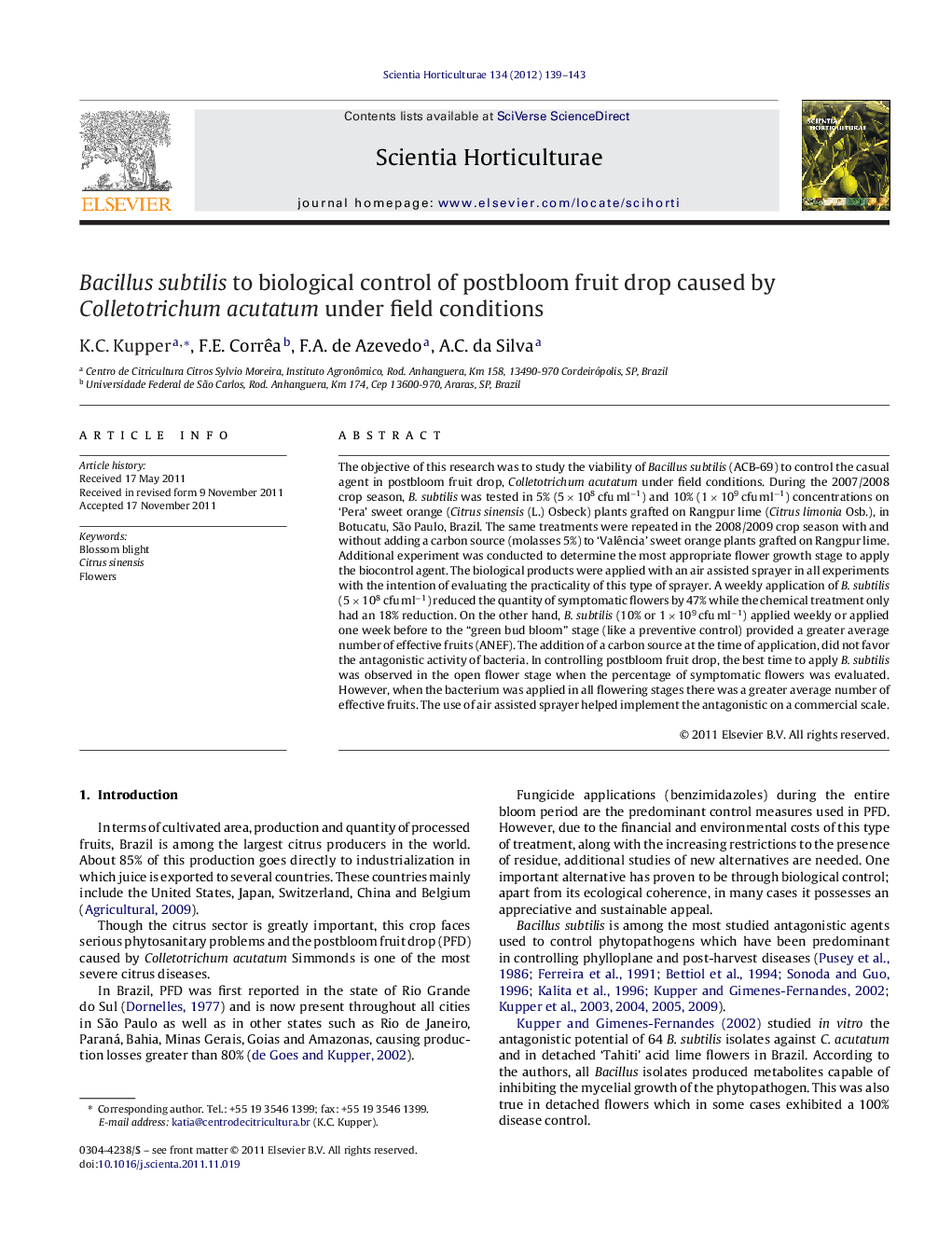| کد مقاله | کد نشریه | سال انتشار | مقاله انگلیسی | نسخه تمام متن |
|---|---|---|---|---|
| 4567769 | 1628864 | 2012 | 5 صفحه PDF | دانلود رایگان |

The objective of this research was to study the viability of Bacillus subtilis (ACB-69) to control the casual agent in postbloom fruit drop, Colletotrichum acutatum under field conditions. During the 2007/2008 crop season, B. subtilis was tested in 5% (5 × 108 cfu ml−1) and 10% (1 × 109 cfu ml−1) concentrations on ‘Pera’ sweet orange (Citrus sinensis (L.) Osbeck) plants grafted on Rangpur lime (Citrus limonia Osb.), in Botucatu, São Paulo, Brazil. The same treatments were repeated in the 2008/2009 crop season with and without adding a carbon source (molasses 5%) to ‘Valência’ sweet orange plants grafted on Rangpur lime. Additional experiment was conducted to determine the most appropriate flower growth stage to apply the biocontrol agent. The biological products were applied with an air assisted sprayer in all experiments with the intention of evaluating the practicality of this type of sprayer. A weekly application of B. subtilis (5 × 108 cfu ml−1) reduced the quantity of symptomatic flowers by 47% while the chemical treatment only had an 18% reduction. On the other hand, B. subtilis (10% or 1 × 109 cfu ml−1) applied weekly or applied one week before to the “green bud bloom” stage (like a preventive control) provided a greater average number of effective fruits (ANEF). The addition of a carbon source at the time of application, did not favor the antagonistic activity of bacteria. In controlling postbloom fruit drop, the best time to apply B. subtilis was observed in the open flower stage when the percentage of symptomatic flowers was evaluated. However, when the bacterium was applied in all flowering stages there was a greater average number of effective fruits. The use of air assisted sprayer helped implement the antagonistic on a commercial scale.
► To study the viability of Bacillus subtilis in controlling Colletotrichum acutatum.
► A carbon source at the time of application, did not favor the antagonistic activity.
► B. subtilis applied in all flowering stages of citrus improve the biocontrol.
Journal: Scientia Horticulturae - Volume 134, 1 February 2012, Pages 139–143